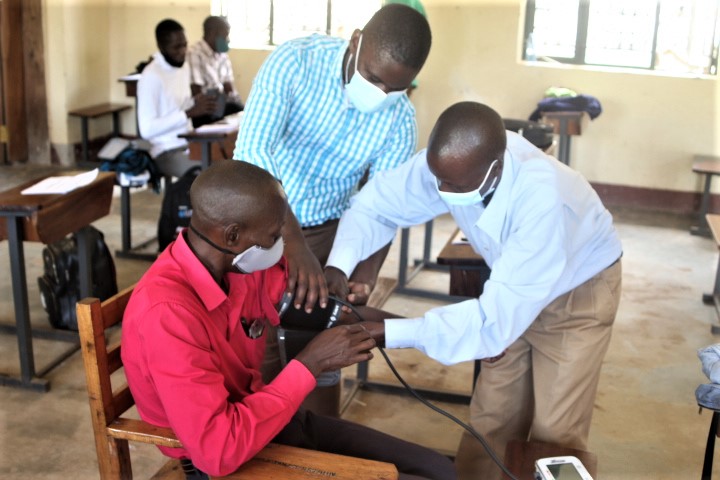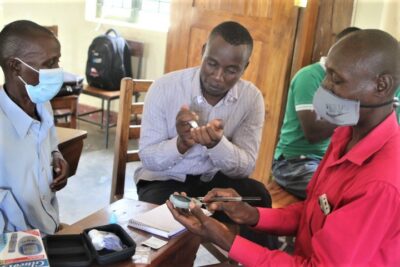

CHWs play an increasingly important role in the delivery of healthcare services. They are recognized as valuable members of a healthcare service delivery team. CHWs can take over a set of responsiblities, based on their education and training. They are commonly employed in the fields of health promotion and preventive care. CHWs can act as a health promoters, directly providing information and consulting community members to nurture health beneficial behaviour. This can for instance take place in the fields of nutrition or health monitoring. Furthermore, CHWs can provide preventive health services such as family planning tools or vaccinations. Traditionally, CHWs focus rather on health promoting activities while nurses support the medical interventions.

The local team currently eduacates the CHWs about the research aims, methods and best practices. Furthermore, the CHWs will receive training on the newest technology and data collection tools used for the coming studies. The CHWs will mostly collect data on the rural population in Nakaseke and the prevalence of NCDs. Thereby they will focus on factors such as socioeconomic aspects, disease occurance and medication adherence. CHWs are a crucial part to our work as they are familiar with community members and the local language in Nakaseke district. Growing up in and around Nakeseke themselves, many of them have strong ties to the community. This is essential for gaining the trust of participants during our research.